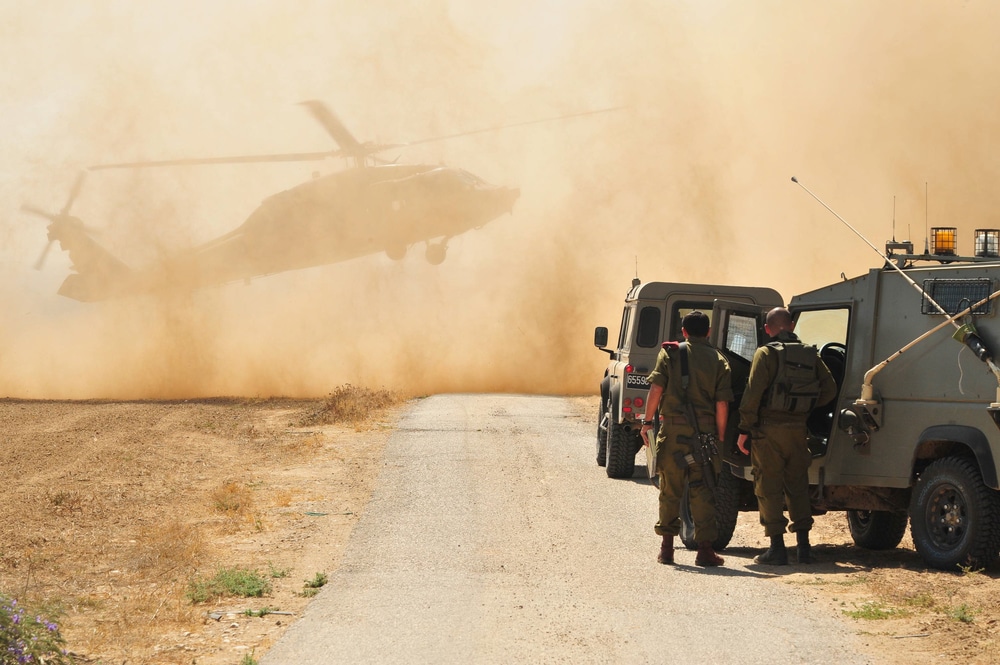Ground Operations in Gaza
According to the Israeli Defense Forces (IDF) Spokesperson, Brig. Gen. Daniel Hagri, Israeli ground forces are intensifying their operations in the northern Gaza Strip. He stated, “Our Air Force is extensively targeting underground facilities and prominent terrorist infrastructure.
Watch:
>> RAW VIDEO FOOTAGE (Extremely Graphic)
Hamas Massacres, Southern Israel, 7th October 2023 <<
credit: HamasVideo.com
History of IDF Ground Operations in Gaza
The history of Israel’s relationship with the Gaza Strip is complex, interwoven with territorial disputes, political maneuverings, and varying phases of conflict. The Israeli Defense Forces (IDF) have conducted multiple ground operations in Gaza over the decades, primarily in response to ongoing threats emanating from the territory.
Historical Context: The Birth of Israel and Gaza
In 1947, the United Nations approved the partition plan, which aimed to create two states: a Jewish state (Israel) and an Arab state (Palestine). The State of Israel was subsequently declared in 1948, leading to the War of Independence. Following the 1949 armistice agreements, Egypt controlled the Gaza Strip.
However, the 1967 Six-Day War saw Israel capture Gaza from Egypt, and thus began Israel’s military occupation of the territory. Over time, with increasing Palestinian nationalism, Gaza became a focal point of resistance against Israeli control.
Emergence of Hamas and Increased Hostilities
In 1987, during the First Intifada, the Islamist organization Hamas was founded. With a charter openly calling for the destruction of Israel, it soon became a significant actor in Palestinian resistance. By the 2000s, especially after Israel’s unilateral disengagement from Gaza in 2005, Hamas strengthened its grip on the Strip, leading to tensions and confrontations.
Operation Cast Lead (2008-2009)
In December 2008, the IDF initiated Operation Cast Lead in response to ongoing rocket attacks from Gaza onto Israeli towns. This 22-day operation was the most extensive ground incursion since the 2005 disengagement. Israel’s objective was to curb rocket fire and weaken Hamas’ military capabilities. The operation resulted in significant casualties on both sides and ended with a unilateral ceasefire.
Operation Protective Edge (2014)
This was one of the most extended and deadliest conflicts between Israel and Gaza-based militant groups. Launched in July 2014, the operation aimed to halt incessant rocket attacks from Gaza and destroy the elaborate tunnel network built by Hamas and other factions. These tunnels penetrated Israeli territory, posing direct threats to civilian communities. A ground invasion was seen as necessary to neutralize this threat. After 50 days of fighting and intense international diplomacy, a ceasefire was achieved, but not before inflicting heavy casualties on both sides.
Underlying Causes of Ground Operations
Several factors have perpetuated the cycle of violence between Israel and Gaza:
- Security Concerns: Israel’s primary reason for launching ground operations is the need to protect its citizens from rocket attacks, infiltrations, and other threats emanating from Gaza.
- Hamas’ Stance: Hamas’ refusal to recognize Israel and its commitment to armed resistance ensures continued friction.
- Political Dynamics: Sometimes, internal Palestinian rivalries between groups like Hamas and Fatah can influence the escalation of hostilities.
- Regional and International Factors: The broader Middle East’s geopolitics, including the roles of countries like Iran and Egypt, and international diplomatic efforts, play significant roles in either escalating or de-escalating the situation.
The history of IDF ground operations in Gaza is a testament to the protracted and multifaceted nature of the Israeli-Palestinian conflict. Rooted in decades-old political, territorial, and ideological disputes, these operations reflect the broader challenges in achieving a lasting peace in the region. Until a comprehensive political solution is reached that addresses the core issues of the conflict, the potential for future ground operations remains.
Editorial credit: ChameleonsEye / Shutterstock.com


